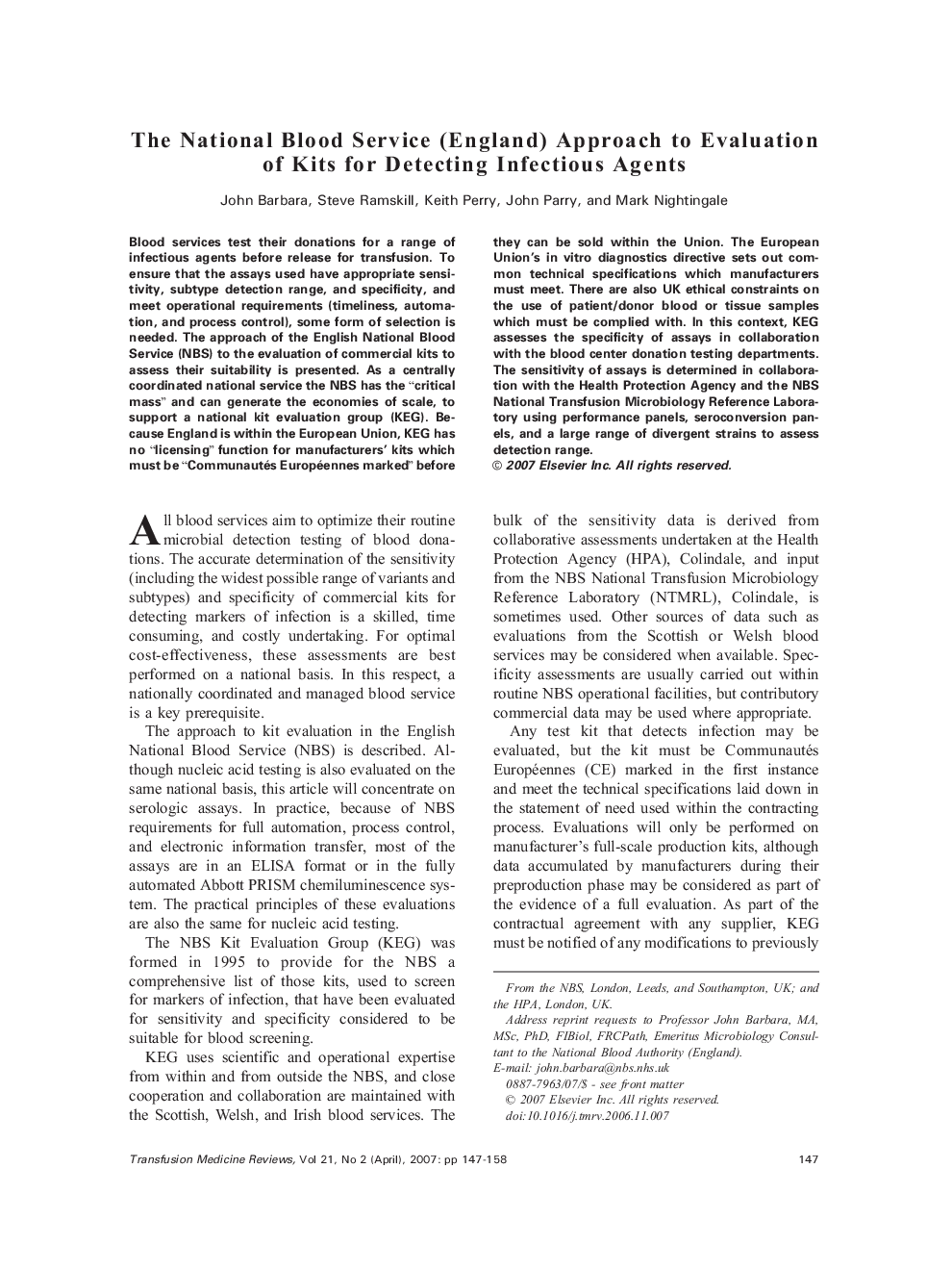| Article ID | Journal | Published Year | Pages | File Type |
|---|---|---|---|---|
| 3336918 | Transfusion Medicine Reviews | 2007 | 12 Pages |
Blood services test their donations for a range of infectious agents before release for transfusion. To ensure that the assays used have appropriate sensitivity, subtype detection range, and specificity, and meet operational requirements (timeliness, automation, and process control), some form of selection is needed. The approach of the English National Blood Service (NBS) to the evaluation of commercial kits to assess their suitability is presented. As a centrally coordinated national service the NBS has the “critical mass” and can generate the economies of scale, to support a national kit evaluation group (KEG). Because England is within the European Union, KEG has no “licensing” function for manufacturers' kits which must be “Communautés Européennes marked” before they can be sold within the Union. The European Union's in vitro diagnostics directive sets out common technical specifications which manufacturers must meet. There are also UK ethical constraints on the use of patient/donor blood or tissue samples which must be complied with. In this context, KEG assesses the specificity of assays in collaboration with the blood center donation testing departments. The sensitivity of assays is determined in collaboration with the Health Protection Agency and the NBS National Transfusion Microbiology Reference Laboratory using performance panels, seroconversion panels, and a large range of divergent strains to assess detection range.
